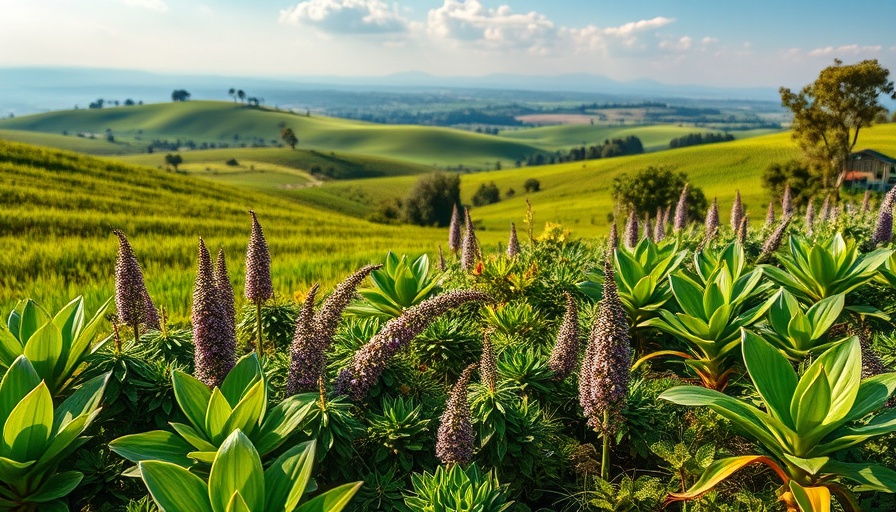
Understanding the Deep Connection Between Land and Indigenous Wisdom
Indigenous knowledge holds profound insights about our relationship with the land, as articulated by Alice Nash, an associate professor of history at the University of Massachusetts Amherst. The recent symposium on Indigenous landscapes at Dumbarton Oaks emphasized the importance of this relationship, presenting the land as a vital teacher about sustainability and future envisioning. This perspective advocates for a shift from the often compartmentalized views found in Western academia to a more integrated understanding where 'all is related and connected.'
Building Bridges Between Cultures and Knowledge Systems
The symposium aimed to merge Indigenous knowledge with academic frameworks, a goal that's particularly relevant for industries such as landscaping and property development. By engaging with Indigenous knowledge-keepers and acknowledging their ecological wisdom, professionals in these fields can foster a more holistic approach to environmental stewardship. Such integration not only enriches project outcomes but also promotes respectful relationships with land that many local yard contractors must consider.
From Myth to Ecology: The Rich Cosmology of Indigenous Peoples
Historian Gabrielle Tayac of the Piscataway Nation highlights how Indigenous narratives inform sustainable practices. For instance, members of the Blackfeet Nation believe in a spiritual connection with plants, as demonstrated through their cultivation of tobacco. Understanding these narratives can enhance the work of landscapers and garden upkeep teams, persuading them to apply ancient wisdom about plant relationships in today's environmental framework.
Indigenous Practices: A Model for Sustainable Landscaping
A misconception exists that Indigenous peoples merely foraged for food. On the contrary, ecological management and permaculture were crucial aspects of their practice. Women in the Blackfeet community, for example, played pivotal roles in managing tobacco fields, demonstrating hands-on techniques that ensure soil health and sustainable yields. Landscaping professionals can draw inspiration from such models to implement eco-friendly yard services capable of thriving in contemporary contexts.
The Spiritual and Ecological Significance of Turtles
The Pequot peoples of Connecticut share a creation story where a turtle brings land from the depths, representing a holistic view of the world. Nakai Clearwater Northrup elucidates the interconnectedness of turtles and the seasons, shedding light on how these stories could shape water management and soil conservation efforts within landscaping practices. Understanding these perspectives encourages local yard services to consider ecological balance rather than just aesthetics.
Implications for Today's Green Space Experts
This knowledge isn't just academic; it has real-world applications. As green space experts in Muskegon seek tailored turf solutions and develop backyard enhancement plans, acknowledging Indigenous wisdom can guide practitioners toward community-focused and ecologically sensitive strategies.
Bridging the Gap: Calls for Collaboration
As landscape professionals increasingly value eco-friendly yard services, collaboration with Indigenous communities may provide valuable insights. By actively seeking partnerships and listening to the wisdom of Indigenous knowledge-holders, landscaping firms can elevate the sustainability of their projects and foster greater respect for the land.
In conclusion, the knowledge systems articulated during the symposium serve not only as a call to action but as an invitation to rethink how we care for our shared spaces. As the environment faces increasing pressures from urban development, understanding these traditional practices offers fresh insights for sustainable landscaping efforts.
 Add Row
Add Row 
 Add
Add 


Write A Comment